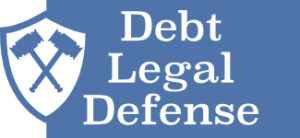Congratulations on your acceptance to college! It’s a big step toward your future and reaching your academic goals. Now comes the part where you have to figure out how to pay for it. Financing your education can be a daunting task with seemingly overwhelming options, but understanding the choices and being armed with information can help.
What is a Private Student Loan?
When considering options for student loans, it’s important to note that there are two different types: federal and private. As the name may suggest, when you take out a federal student loan to help pay for school expenses, this type of loan is subsidized by the federal government and has terms and conditions that are set by law. Alternatively, private student loans are financed by a private lender who in turn set their own terms and conditions. Examples of private lenders could include a bank, credit union, or other financial institution.
How Do I Get a Private Student Loan?
To qualify for a private student loan, a couple of things will be necessary. Private student loans require a credit check. If your credit score is deemed unfavorable, then you may need a co-signer who has a strong credit score in order to be approved for the loan. The same applies to income: if your income does not meet the financial institution’s minimum requirements, you will likely need a co-signer whose income does. Credit score and income combined are what lenders take into consideration when reviewing a loan applicant’s ability to repay the funds that are borrowed. For undergraduate students, it is common that a co-signer will be necessary as most college students of this age have not had the time or opportunity to build both a solid credit score and a healthy income.
How Much Will I Be Able to Borrow?
The amount that you will be able to borrow depends on the lender. Many private student loans can be taken for up to the cost of attendance. Your school’s financial aid office will need to certify your enrollment at the school, your eligibility to receive the loan, the amount of the loan, and the current cost of attendance match.
When Will I Need to Pay Back the Loan?
Payments on a private student loan typically are not required to begin until after graduation or you are no longer enrolled as a full-time student. This as well as the length of the loan varies based on the terms that are agreed to at the time of signing, although repayment terms of 5, 7, 10, 15, 20 and 25 years are fairly standard. Be sure to shop around as you consider which loan is right for you as interest rates, fees and repayment terms can differ greatly and can vastly affect the total you will be required to pay over the life of the loan.
What if I Can’t Make My Payments and I Need Help?
With the rapidly changing state of today’s economy, if you find yourself in dire straits and are unable to make your private student loan payments, contact us at Debt Legal Defense immediately so we can formulate a plan to help. We will review your situation and determine the best solution for you, such as working with your lender on a forbearance program, renegotiating your interest rates or loan payments, reaching a settlement on your outstanding debt, and more. We are here to help with support, encouragement and guidance so you can make the informed decision that’s right for you. Call us at 210-468-1008 or contact us online today to learn more.






